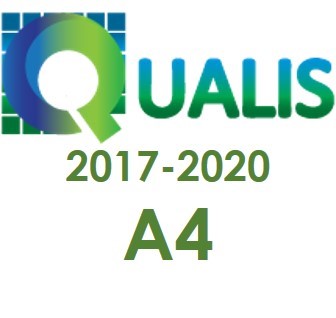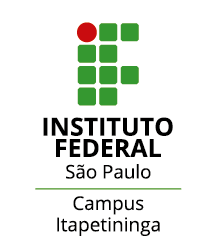The inefficiency of student-centered pedagogical approaches in a francophone context
why would it be different elsewhere?
Keywords:
Pedagogical approaches. Project pedagogy. Francophone context.Abstract
This article aims to describe pedagogical practices centered on the teacher and the student, as traditional and emerging strategies in view of the need to reformulate educational systems. The reflections of a very popular student-centered strategy, project pedagogy, are analyzed in a French-speaking context located in Quebec. The study shows that the results of students participating in Quebec's educational reform and project-based pedagogy were reduced compared to students who remained in mainstream education. Although we have a dominant constructivist discourse, teacher-centered teaching strategies demonstrate greater effectiveness and should consolidate school reform initiatives.
Downloads
References
ANDERSEN, I. G. et ANDERSEN, S. C. (2017). Student-centered instruction and academic achievement: linking mechanisms of educational inequality to schools’ instructional strategy. British Journal of Sociology of Education, 38(4), 533-550. http://dx.doi.org/10.1080/01425692.2015.1093409
BERNET, E. (2002). Effets comparés d'une approche pédagogique du projet sur la valeur accordée à l'apprentissage et sur le rendement auprès des élèves de la fin du primaire. Mémoire de maîtrise, Université de Montréal, Montréal.
BISSONNETTE, S. (2008). Réforme éducative et stratégies d'enseignement : synthèse de recherches sur l'efficacité de l'enseignement et des écoles. Québec, Canada : Thèse inédite Université Laval.
BISSONNETTE, S., RICHARD, M. & GAUTHIER, C. (2005). Échec scolaire et réforme éducative. Quand les solutions proposées deviennent la source du problème. Sainte-Foy: Presses Université Laval.
BISSONNETTE, S., RICHARD, M., GAUTHIER, C. et BOUCHARD, C. (2010). Quelles sont les stratégies d'enseignement efficaces favorisant les apprentissages fondamentaux auprès des élèves en difficulté de niveau élémentaire? Résultats d'une méga-analyse. Revue de recherche appliquée sur l’apprentissage, 3(1), 1-35.
BROPHY, J. E. & GOOD, T. L. (1986). Teacher behavior and student achievement. In M.C. Wittrock (dir.), Handbook of research on teaching (3e éd.), (pp. 328-375). New York, NY: Macmillan.
BURTON, R. & FLAMMANG, C. (2001). D'une stratégie d'enseignement des sciences centrée sur l'enseignant vers une stratégie centrée sur l'élève : analyse des processus d'enseignement. Dossiers des Sciences de l'Éducation, 5, 53-65.
CARNINE, D. (2000). Why éducation experts resist effective practices and what it would take to make éducation more like medicine. Washington, D.C.: Thomas B. Fordham Foundation
CHALL, J. S. (2000). The académie achievement challenge. What really woks in the classroom. New York, NY: Guilford Press.
CUBAN, L. (1993). How teachers taught. Constancy and change in american classroom 1880- 1990 (2e éd.). New York, NY: Teachers Collège Press.
DESJARDINS, J. (2005). La réforme des pratiques d’évaluation des apprentissages : virage ou recommencement. In Y. Lenoir, F. Larose et C. Lessard (dir.). Le curriculum de l’enseignement primaire : regards critiques sur ses fondements et ses lignes directrices (pp. 297-318). Faculté d’éducation Université de Sherbrooke, Éditions CRP : Sherbrooke.
EVERS, W. M. (1998). From progressive éducation to discovery learning. In W.M. Evers (dir.), What's gone wrong in american classroom? (pp. 23-48) Stanford, CA: Hoover Press.
FAVRE, B., NIDEGGER, C., OSIEK, F., SAADA, E.H., CHANGKAKOTI, N., GUIGNARD, N., JAEGGI, J. et SOMMER, A. (1999). Le changement : un long fleuve tranquille ? Département de l’instruction publique, Service de la recherche en éducation : Genève.
FINN, C. E. & RAVITCH, D. (1996). Education reform. A report from the Educational Excellence Network to Us Education Policy Committee and the american people. Indianapolis, IN: Hudson Institute.
FISCHER, E., et HÄNZE, M. (2019). Back from “guide on the side” to “sage on the stage”? Effects of teacher-guided and student-activating teaching methods on student learning in higher education. International Journal of Educational Research, 95, 26-35.
FREEDMAN, J. (1993). Failing grades : Canadian schooling in a global economy. Redirecting Canada 's educational debate. Edmonton: Full Court.
GAGE, N. L. (1978). The scientific basic ofthe art of teaching. New York, NY: Teachers Collège Press.
GAGE, N.L. & BERLINER, D.C. (1992). Education psychology (5e éd.). Boston, MA: Houghton Mifflin.
GAUTHIER, C. (2006). Recherche en enseignement et réformes éducatives. Des liens à tisser. Éducation Canada, Hiver 2005/06, 13-15.
GAUTHIER, C. & MELLOUKI, M. (2006). Nouveau signifie-t-il amélioré? Évaluons avant de poursuivre la réforme au secondaire. Formation et Profession, 12 (1), 10-12.
GEARY, D. (2001). A Darwinian perspective on mathematics and instruction. In T. Loveless (dir.), 777e great curriculum debate. How should we teach reading and math? (pp. 85-107). Washington, DC: Brookings Institution Press.
GROSSEN, B. (1998b). What is wrong with american éducation? In W.M. Evers (dir.), What's gone wrong in American classrooms? (pp. 23-48). Stanford, CA: Hoover Press.
HAECK, C., LEFEBVRE, P., et MERRIGAN, P. (2014). The distributional impacts of a universal school reform on mathematical achievements: A natural experiment from Canada. Economics of Education Review, 41, 137-160.
HIRSCH, E. D. (1999). The schools we need: Why we need them. New York, NY: Anchor Books Doubleday
KIRSCHNER, P. A., SWELLER, J. et CLARK, R. E. (2006). Why minimal guidance during instruction does not work: an analysis of the failure of constructivist, discovery, problem-based, experiential, and inquiry-based teaching. Educational Psychologist, 41(2), 75-86. http://dx.doi.org/10.1207/s15326985ep4102_1
KLAHR, D. & NIGAM, M. (2004). The équivalence of learning paths in early science instruction : Effects of direct instruction and discovery learning. Psychological Science, 75(10), 661- 667.
LABAREE, D. F. (2004). The ed school's romance with progressivism. In D. Ravitch (dir.), Brookings papers on éducation policy (pp. 89-130). Washington, DC: Brookings Institution Press.
LAFORTUNE, L. et Daudelin, C. (2001). Accompagnement socioconstructiviste. Pour s’approprier une réforme en éducation. Sainte-Foy, Québec : Presses de l’Université du Québec.
LARRIVÉE, S., LAROSE, F. & TERRISSE, B. (2005). La réforme de l'éducation au primaire : enjeux psychopédagogiques et organisationnels. In Y. Lenoir, F. Larose et C. Lessard (dir.), Le curriculum de Venseignement primaire : regards critiques sur ses fondements et ses lignes directrices (pp. 201-220). Faculté d'éducation Université de Sherbrooke, Sherbrooke : Éditions CRP.
LAROSE, S. et DUCHESNE, S. (2014). Perceptions de l’enseignement et réussite éducative au secondaire : une analyse comparative selon que les élèves ont été exposés ou non au renouveau pédagogique. Québec : Presses de l’Université Laval.
LENOIR, Y., LAROSE, F. & LESSARD, C. (2005). Le curriculum de l'enseignement primaire : regards critiques sur ses fondements et ses lignes directrices. Faculté d'éducation Université de Sherbrooke, Sherbrooke : Éditions CRP.
LESSARD, C. (1999). La rénovation de l’école primaire genevoise : une étude de cas. (2e partie). Conseil supérieur de l’éducation : Québec.
LESSARD, C., et Portelance, L. (2001). Réflexions sur la réforme curriculaire au Québec. Document remis à̀ la Centrale des syndicats du Québec. Montréal : Université de Montréal.
MELLOUKI, M. (2006). Construire sa connaissance. Pédagogie de projet et nouvel esprit du capitalisme. Formation et Profession, 12(3), 59-61.
MINISTÈRE DE L’ÉDUCATION, DU LOISIR ET DU SPORT (2006). Bilan de l’application du programme de formation de l’école québécoise – enseignement primaire. Rapport final. Table de pilotage du renouveau pédagogique. Québec : Gouvernement du Québec.
MINISTÈRE DE L’ÉDUCATION DU QUÉBEC (2001, 2 février). De L’enseignement à l’apprentissage. Virage Express. Édition spéciale, 3(6), 1-6.
MINISTÈRE DE L’ÉDUCATION DU QUÉBEC (2001). Programme de formation de l’école québécoise. Version approuvée. Gouvernement du Québec : Québec.
NATIONAL MATHEMATICS ADVISORY PANEL (2008). Foundations for Success: The Final Report of the National Mathematics Advisory Panel. U.S. Department of Education: Washington, DC.
NULL, J.W. (2004). Is constructivism traditional? Historical and practical perspectives on a popular advocacy. The Educational Forum, 68, 180-188.
ORGANISATION DE COOPÉRATION ET DE DÉVELOPPEMENT ÉCONOMIQUES. (2016). Résultats du PISA 2015 (Volume II) : Politiques et pratiques pour des établissements performants. Paris : Éditions OCDE. http://dx.doi.org/10.1787/9789264267558-fr
O'NEILL, G. P. (1988). Teaching effectiveness : A review ofthe research. Canadian Journal of Education, 7.3(1), 162-185.
RAVITCH, D. (2000). Left back: A century offailed school reforms. New York, NY: Simon & Schuster.
REY, B. (2001). Création d’épreuves étalonnées en relation avec les nouveaux socles de compétences pour l’enseignement fondamental. (Rapport numéro 67-100). Bruxelles : Université Libre de Bruxelles.
ROSENSHINE, B.V. & STEVENS, R. (1986). Teaching functions. In M. C. Wittrock (dir.), Handbook ofresearch on teaching (3e éd.), (pp. 376-391). New York, NY: Macmillan.
SNIDER, V.E. (2006). Myths and misconceptions about teaching. Latham, MD: Rowman & Littlefield Education.
TEDDLIE, C. & REYNOLDS, R. (2000). 77ze international handbook of school effectiveness research. London: Falmer Press.
THÉORÊT, M., LEROUX, M., CARPENTIER, A. & BERTRAND, C. (2005). Analyse de l'appropriation de la réforme du curriculum par des enseignants et évaluation d'impact sur la réussite en mathématiques d'élèves à risque. Projet Transmaths. Montréal: Université de Montréal.
TROTTIER, D. (2006). Autonomie professionnelle, vraiment? Formation et Profession, 12 (1), 13- 23.
Downloads
Published
How to Cite
Issue
Section
License
Copyright (c) 2023 Revista Internacional de Formação de Professores

This work is licensed under a Creative Commons Attribution-NonCommercial-ShareAlike 4.0 International License.



 Este trabalho está licenciado sob uma licença
Este trabalho está licenciado sob uma licença 